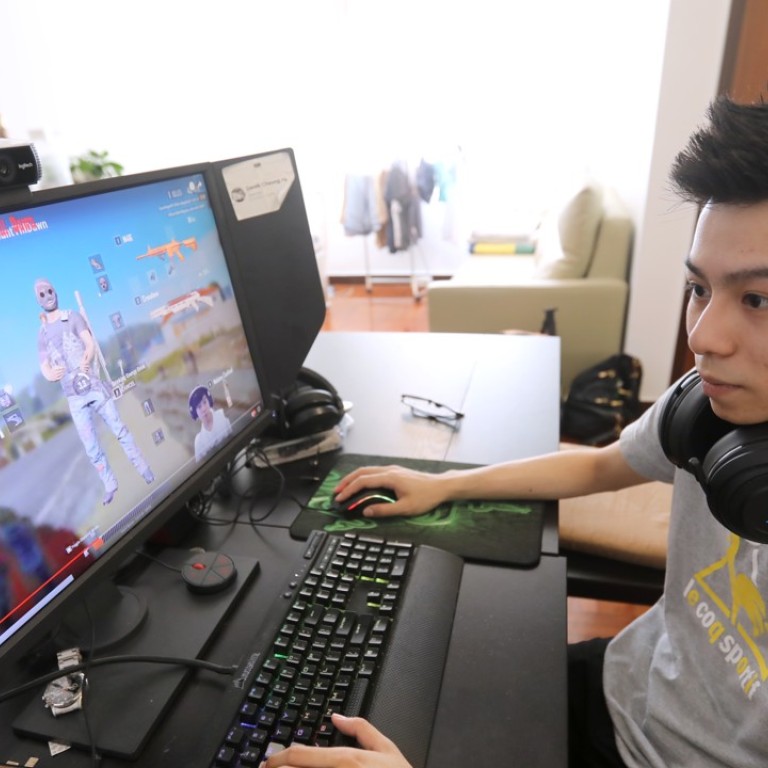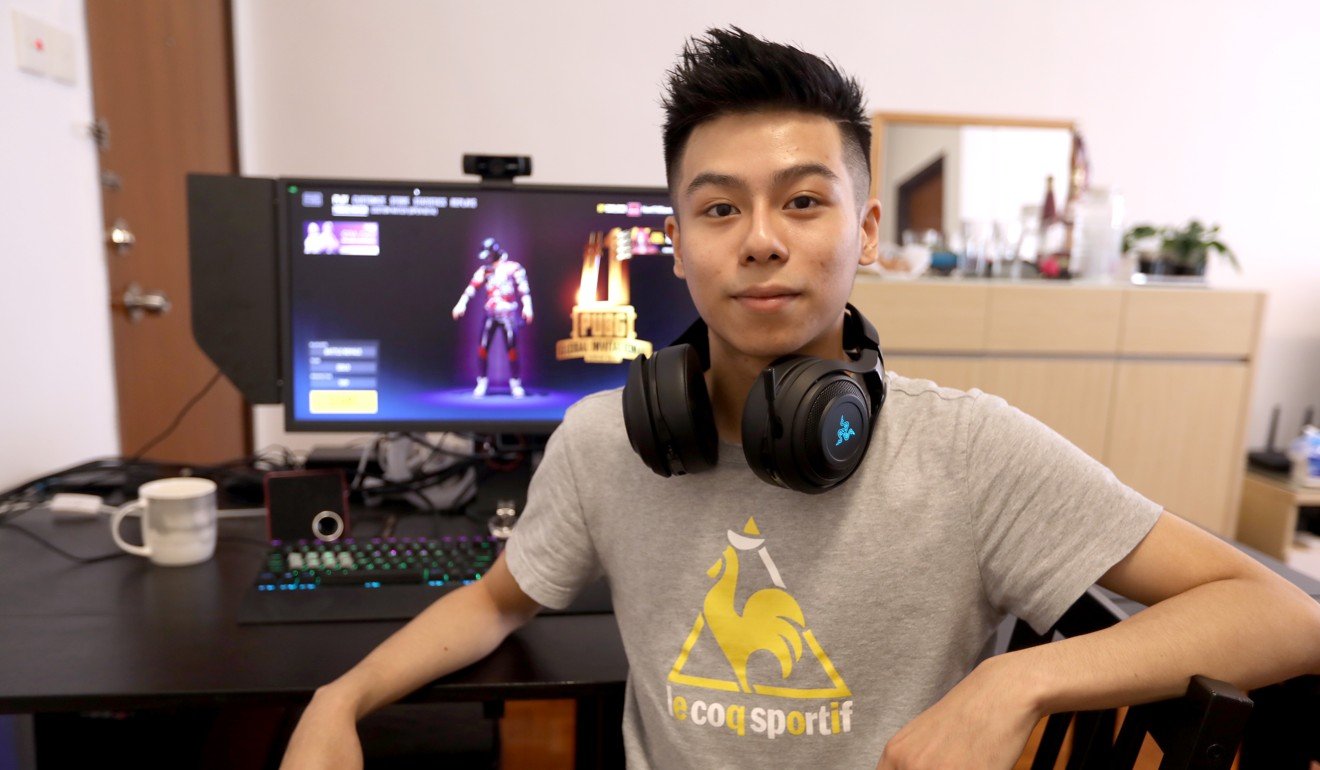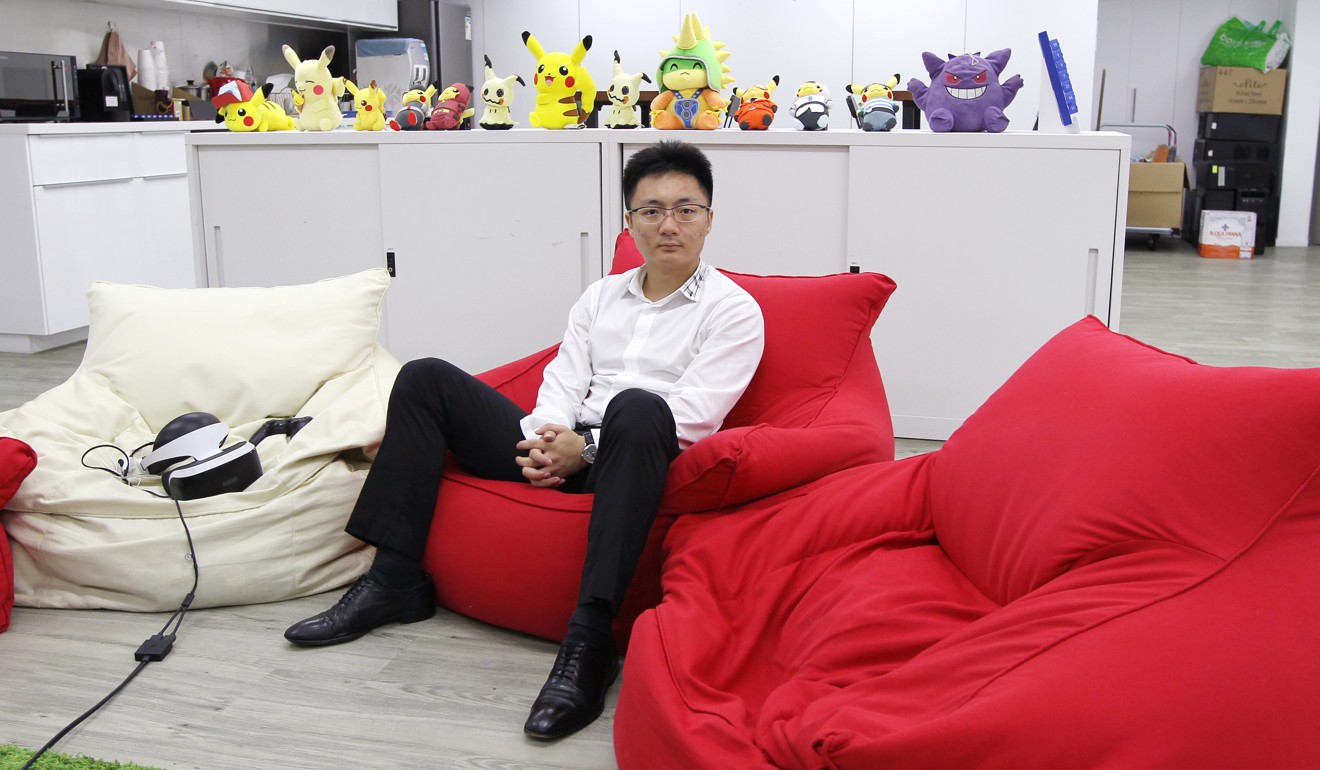
Hong Kong e-sports fanatic who dropped out of high school eyes pro career in gaming
Ex-Wah Yah College student once clashed with father but now has full support as emerging industry enjoys unprecedented government funding
Studying at a prestigious secondary school like Wah Yan College is commonly seen as a precious educational opportunity in Hong Kong. But avid e-sports fan Daniel Douglas Chok quit the institution two years ago to chase his dream.
The 21-year-old started playing video games at the age of nine. Within years, Chok became one of the top shooting game players in the city, and from 2007 to 2009, won first place in the United States in one called Gunz: The Duel. He now earns more than HK$660 (US$84) per hour broadcasting his game-playing.
But his e-sports achievement once proved a source of anguish for his father, Joseph Chok, who argued that academics should take precedence. The son recalled his father yelling at him: “You are not my son! You will be a beggar!”

Chok said he wanted to bring pride to his family, just like his grandmother Elvie Chok and his uncle Philip Chok, both of whom won world championships in lawn bowling. After gaining a better understanding of his son’s passion, the elder Chok finally reconciled with him and offered his support.
“I really want to represent Hong Kong,” the younger Chok said. “I want to let the world know Hong Kong also has top players in e-sports.”
Many young Hongkongers like Chok are eyeing opportunities in the rapidly evolving industry as the government beefs up its support for the sector.
Asian student wins nearly HK$2m at inaugural Fifa eWorld Cup
Despite officials’ concerted efforts to promote e-sports, players and academics said the road to success would be a long one.
According to a City University study last year, there are over 300,000 players in the city, with nearly 90 per cent aged between 13 and 21.
Earlier this month, the Hong Kong Student E-sports Association hosted its third joint school competition at Cyberport, attracting hundreds of participants.
Its chairwoman, Gabriella Leung Nga-chi, said it was easier this year for the group to find sponsorship and that schools had become more receptive to e-sports. The number of teams securing approval from their schools to participate rose from 10 in 2016 to 23 this year, she noted.
However, Leung said it would be difficult for players to prosper in the city because resources were rarely put into training professional teams. The group estimates Hong Kong has about 10 professional male teams and four professional female teams.
Are e-sports sports? Overwatch players sure act the part
Leung stressed the emerging sector was in fact so big and filled with such a diversity of career opportunities that it could provide young people a viable alternative career choice. She hoped to become an e-sports event organiser after graduating from university.
“I hope I can promote an alternative industry to help people learn to appreciate that different people have different talents,” she said.

In addition, the city’s e-sports festival organised by the Hong Kong Tourism Board is slated to return from August 24 to 26. About 80,000 visitors are anticipated in the second year of the annual event.
Hong Kong E-sports CEO Derek Cheung, who set up his firm in 2013, said officials had good intentions in pushing related policies forward but still lacked knowledge.
“Most people know many young people love watching e-sports and that it’s a professional sport,” Cheung said. “But then for the next step it directly jumps to, ‘OK, let’s make money from here.’”
Tencent bets on China’s gaming nerds to rake in e-sports fortune
He urged the government to set a target first and think about whether it wanted to simply raise awareness or create an established industry to make money.
Dr Olli Tapio Leino, a City University scholar in computer games, said Hong Kong should do more studies to finds its niche in game development. Leino gave the example of looking into setting up e-sports on mobile games or marketing mahjong as part of the industry.
Leino added that the welfare of young people should be factored into any government effort to set up an e-sports ecosystem. For example, coaches should be available to check whether players have finished their homework before they play.
“It should not be left just to the companies to profit off these people,” he added.

